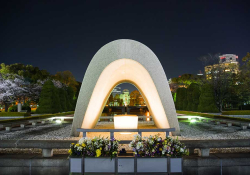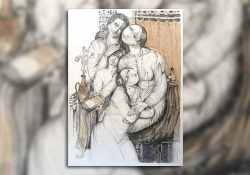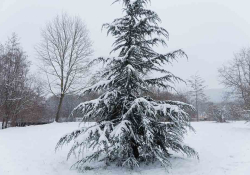Three Poems from Peru

Four Scars for a Nameless Town
1
I come from a town with no name,
no smiles of children under the trees.
My town has no parks
or roads drawn on any map,
or useless books narrating its history.
My town is this sand that falls on my feet,
this mass of shade I carry with me,
a piece of my soul wading in the water’s edge.
2
A town with no history, with no fountain in the square,
isn’t a town, it’s a place in chaos,
a ransacked cove,
an abandoned kingdom,
a nameless star,
a naked, dead girl,
a gloomy night,
a ball in the open sea.
3
This town has no streets
named for fallen war heroes.
It doesn’t have landscapes or photos in almanacs,
murmurs, rocks in the drainage pipes,
moldy and forgotten texts,
clawed up doors underground,
the faintest voices that go and don’t come back.
4
In other times,
people had different faces.
Their paths were different, too, and
nobody came through this town.
A nameless and borderless town
is a line in the air, an empty,
directionless train, an intense love
under the rain, a wrong turn
in the neighborhood, an ill-fated summer afternoon.
A Window in Winter
Through this window
I have seen the rain and snow,
my distant children, an envious
scowl and, far away, a letter
from God on the ground ripped to shreds.
From this window
the word Homeland has
the aroma of toasted coffee, of hot
bread, of resonant Spanish.
But this window, certainly,
has stature and anguish,
a frightening blind corner.
I have a window in
West Philly like someone
holding onto an illusion or a dream.
But for the record:
The sun doesn’t come in through this window,
much less memorable feats,
just questions and the Past,
just your name like fragile pride.
Poetry
Quiero escribir, pero me sale espuma.
I want to write, but out comes foam.
– César Vallejo, trans. Clayton Eshleman
They told me She’s like this,
like the skinny and fickle girl you wait for
but who doesn’t show for the date you made,
or like the glass of water we knock over
on accident and it spills all over
our only decent pair of pants,
or like the telephone number we
ruminate on uselessly while the bus
takes so long at night,
or like your first girlfriend that you run into,
defiant and made up,
after years,
in an old bookstore,
perhaps divorced and happy,
or like a stubborn piece of gum
clinging to the sole of our shoe and suffocating us
silently,
or maybe like the violent gray rain
in spring that cusses and flees,
or like the car
that nearly runs us off an
inhospitable and deserted road,
that’s how Poetry, so pale and cruel,
holds back, insults or hisses its
strange song.
Translations from the Spanish















